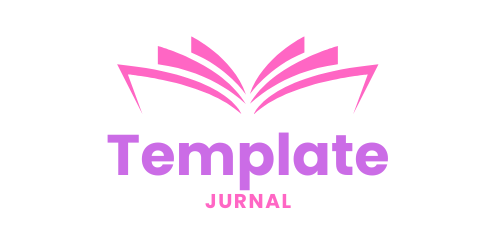PENGARUH PROFITABILITAS DAN GROWTH ASSET TERHADAP STRUKTUR MODAL(PERSPEKTIF PECKING ORDER THEORY)
DOI:
https://doi.org/10.24256/joins.v2i2.1470Abstract
Abstract: The purpose of this study is to determine the effect of profitability and growth assets on capital structure from the perspective of pecking order theory. The population consists of all companies manufacturing basic and chemical industrial sectors and various industrial sectors which are listed on the Indonesia Stock Exchange (IDX) for the period 2013-2016. The sample is determined based on purposive sampling technique so that the number of samples is 59 companies. The type of data used is panel data (a combination of time series and cross sections). The method of data collection is done by downloading a summary of financial statements on the Indonesia Stock Exchange's website. To answer the objectives above, this study uses linear multiplie regression. Research findings that profitability has a negative effect on capital structure. Growth assets have a positive effect on capital structure. Thus, these findings support pecking order theory.
Keywords: Profitability, Growth Asset, Capital Structure, Pecking Order Theory
Â
Abstrak: Tujuan penelitian ini untuk mengetahui pengaruh profitabilitas dan growth asset terhadap struktur modal dari perspektif pecking order theory. Populasi terdiri dari seluruh perusahaan manufaktur sektor industri dasar dan kimia dan sektor aneka industri yang terdaftar di Bursa Efek Indonesia (BEI) periode 2013-2016. Sampel ditentukan berdasarkan teknik purposive sampling sehingga jumlah sampel sebanyak 59 perusahaan. Jenis data yang digunakan yaitu panel data (gabungan antara time series dan cross section). Metode pengumpulan data dilakukan dengan cara mendowload ringkasan laporan keuangan di website Bursa Efek Indonesia.Untuk menjawab tujuan diatas maka penelitian ini menggunakan multiplie regression linier. Temuan penelitian bahwa profitabilitas berpengaruh negatif terhadap struktur modal. Growth asset berpengaruh positif terhadap struktur modal. Dengan demikian, temuan ini mendukung pecking order theory.
Keywords: Profitabilitas, Growth Asset, Struktur Modal, Pecking Order Theory
DAFTAR PUSTAKA
Firnanti, F. 2011. Faktor-Faktor yang Mempengaruhi Struktur Modal Perusahaan Manufaktur di Bursa Efek Indonesia. Jurnal Bisnis dan Akuntansi. 13(2):119-128
Ghozali, I. 2014. Ekonometrika (Teori, Konsep dan Aplikasi dengan IBM SPSS 22. Undip, Semarang
Horne, J.C.V., dan Wachowicz, J.M. 2013. Prinsip-prinsip Manajemen Keuangan. Edisi 13 Buku 2. Jakarta: Salemba Empat
Jensen, M., dan Meckling, W. 1976. Theory of the Firm: Managerial Behavior, Agency Cost, and Capital Structure. Journal of Financial Economic. 3(4):305-360
Modiagliani, F., dan Miller, M.H. 1958. The Cost of Capital, Corporation Finance and the Theory of Investment. The American Economic Review. 48(3):261-297
Kartika. A. 2016. Pengaruh Profitabilitas, Struktur Aset, Pertumbuhan Penjualan dan Ukuran Perusahaan Terhadap Struktur Modal Perusahaan Manufaktur di Bursa Efek Indonesia. Infokam. 1:49-58
Myers, S.C. 1984. The Capital Structure Puzzle. Journal of Finance. 39(3):575-592
Munandar, A. 2014. Effect of Size, Profitability, and Growth Rate Towards Capital Structure. Jurnal Dinamika Manajemen. 2(3):153-159
Nuswandari, C. 2013. Determinant Struktur Modal Dalam Perspektif Pecking Order Theory dan Agency Theory. Dinamika Akuntansi, Keuangan dan Perbankan. 2(1):92-102
Sugiyono. 2013. Metode Penelitian Bisnis. Bandung: Alfabeta
Downloads
Additional Files
Published
Issue
Section
Citation Check
License
Authors who wish to publish and disseminate their papers with the Journal Of Institution And Sharia Finance shall agree to the publishing rights set by Journal Of Institution And Sharia Finance Authors understand that they shall assign publication right to as part of the process upon acceptance for publication. Authors agreed that they will transfer certain copyrights to Journal Of Institution And Sharia Finance. Consecutively, authors still retain some rights to use and share their own published articles without written permission from Journal Of Institution And Sharia Finance.
Authors granted Journal Of Institution And Sharia Finance. these following rights; (1) the right to publish and provide the manuscripts in all forms and media for the purpose of publication and dissemination, (2) the authority to enforce the rights in the manuscript, for example in the case of plagiarism or in copyright infringement.
Journal Of Institution And Sharia Finance will follow COPE’s Code of Conduct and Best Practice Guidelines for Journal Editors to protect the research results and takes allegations of any infringements, plagiarisms, ethical issues, and frauds should those issues arise. The manuscript is attributed as authors' work, and are properly identified.



